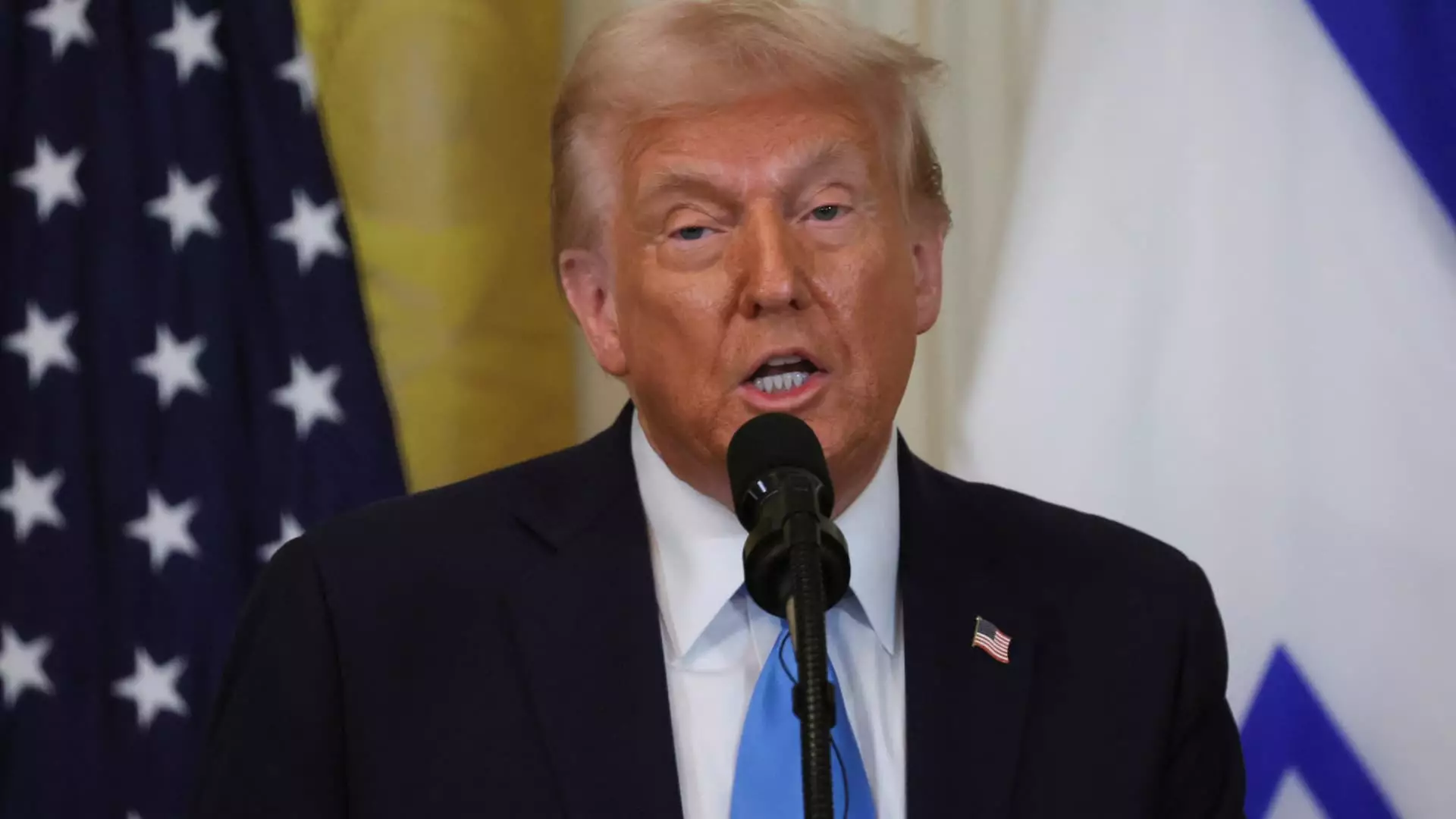In a world characterized by complex political landscapes and humanitarian crises, statements made by influential figures can have profound implications. Recently, former President Donald Trump proposed that the United States should “take over the Gaza Strip,” a controversial assertion that quickly ignited debates across various platforms. This provocative statement, conveyed during a joint news conference with Israeli Prime Minister Benjamin Netanyahu, raises critical questions about international relations, humanitarian responsibilities, and the regional dynamics of the Middle East.
Trump’s comments emerged in the aftermath of a devastating conflict involving Hamas and Israel that began on October 7, 2023. The ongoing violence has dramatically affected millions, particularly the 2 million Palestinians residing in Gaza. The proposal to relocate these individuals to other nations, such as Jordan and Egypt, and for the U.S. to develop the war-torn territory has provoked substantial skepticism and criticism. Indeed, Trump’s characterization of Gaza as a “hellhole” reflects a disdain for the current humanitarian conditions, yet it also oversimplifies the complexities faced by those living there.
While Trump labeled his vision as potentially transforming Gaza into “the Riviera of the Middle East,” one must consider the implications of such rhetoric. The notion of creating an economically prosperous region out of war destruction is enticing but fails to address the underlying issues that have afflicted the Gaza Strip and its inhabitants. Economic development does not occur in a vacuum; it necessitates stability, trust, and meaningful political engagement. Trump’s comments disregard Palestinian sovereignty—an essential element in any sustainable peace agreement.
Netanyahu’s remarks in support of Trump’s proposal underscore a shared vision among certain Israeli leaders about reshaping the future of Gaza. However, is it genuinely feasible or ethical to envision a territory without considering the voices of its current inhabitants? The unilateral nature of these proposals prompts concerns about the legitimacy of displacement and the rights of Palestinians.
The implications of such a takeover are far-reaching. It would signify a dramatic shift in U.S. foreign policy concerning the Israeli-Palestinian conflict. While Trump aims to present a vision of peace and development, the idea of displacing populations raises fundamental questions about human rights and international law. Historically, forced migration has led to resentment, conflict, and persistent instability; thus, dismissing the very real consequences of uprooting millions could be both dangerous and shortsighted.
Moreover, Trump’s proposal risks alienating critical allies in the region. Nations like Jordan and Egypt, already facing pressure from existing Palestinian refugee populations, might be resistant to accepting additional displaced individuals. The king in Jordan and the leaders in Egypt may be forced to confront domestic political challenges should they heed Trump’s call, potentially complicating these nations’ relations with their own populations.
The conversation about Gaza, particularly in the wake of prolonged conflicts, requires a multifaceted approach. A focus on development must accompany initiatives for political dialogue and reconciliation. Encouraging neighboring countries to participate in stabilizing the region must not overshadow the need for a strategy that prioritizes the voices and rights of Palestinians.
Recent developments since the ceasefire in January have shown that progress is possible, albeit fragile. The release of hostages and the gradual return of displaced families signal a desire for peace. However, efforts to reshape Gaza should build upon these moments of hope, fostering an environment where trust can be rebuilt, rather than imposing solutions that may further alienate those affected.
While Donald Trump’s proposal to take control of Gaza is bold, it raises significant ethical, social, and political questions that need to be addressed thoughtfully. As global citizens, we must advocate for solutions that respect human dignity, sovereignty, and the complex realities faced by those living in conflict zones. Approaching such sensitive topics with a commitment to dialogue and understanding could lead to a future where lasting peace is attainable, rather than merely a rhetorical flourish from those in power.


Leave a Reply